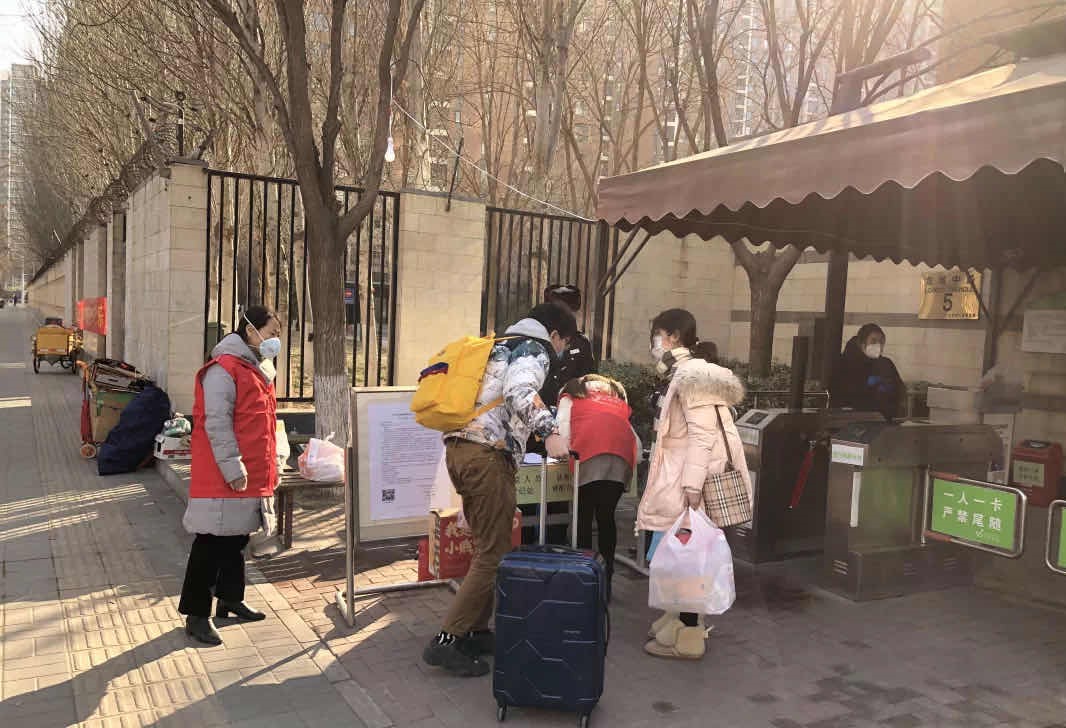Community workers guard Beijing residents against outbreak
- By Cui Can
 0 Comment(s)
0 Comment(s) Print
Print E-mail China.org.cn, February 10, 2020
E-mail China.org.cn, February 10, 2020
Other duties for Yan and her 14 committee members include broadcasting public health information over loudspeakers, putting up posters announcing new safety measures, and tracking the movements of the community's 2,129 residents—especially the 16 families who returned from Hubei, the province at the center of the epidemic.

Understandably, the community has had a tense mood. On a night in late January, the return of one family from Wuhan tipped over the uneasy atmosphere, and Yan received a call at midnight from an anxious resident informing her of the family's arrival. "Come on, go check their situation!" she recalls the man saying.
Yan knocked on the family door first thing the next morning, informing them they were required to stay inside their home for 14 days—the incubation period of the virus. She also ordered the family members to sleep and eat in separate rooms, have their temperatures checked three times every day, and update their health conditions on a daily basis.
The quarantine policy, however, has proven difficult to enforce at times. Yan says she continually receives calls from residents complaining that people have left their home, and that she should release the personal information of that family, such as their phone numbers and address.
Yan says she rejects those kinds of demands. "I have the responsibility to protect every resident's privacy. Communities are the small cells that make up the society, and everyone should show trust for each other and join hands together at this time."






Go to Forum >>0 Comment(s)